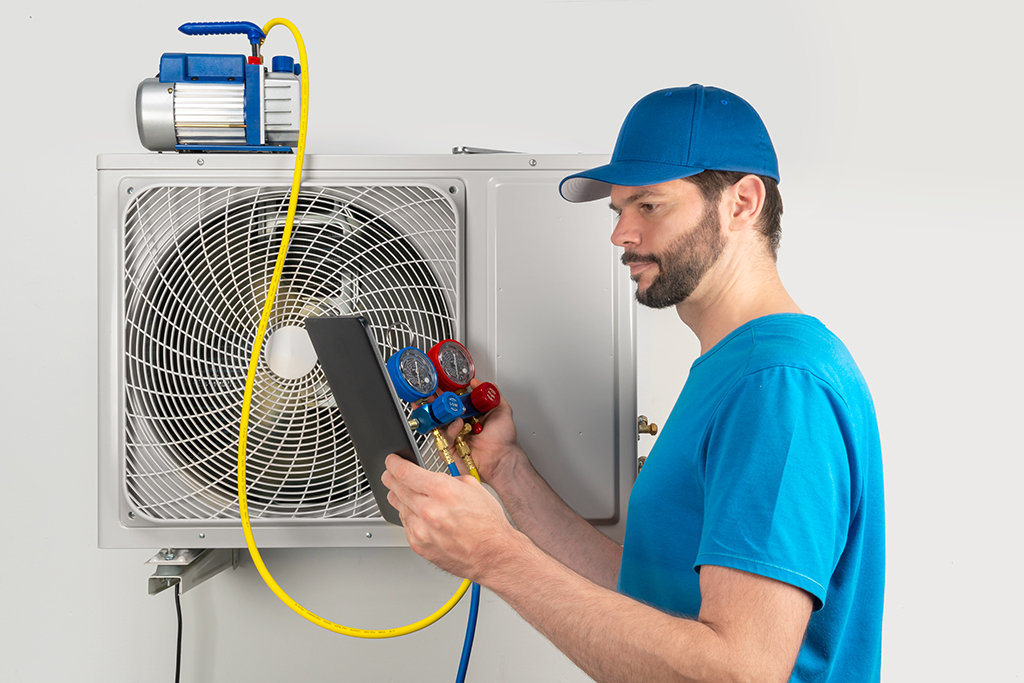4 Situations When You Should Call An AC Repair Specialist
If you notice that your air conditioning is not working properly, it may be time to call an AC repair Birmingham AL specialist. While it can be tempting to try and fix the problem yourself, you should never attempt to do so without professional assistance.
An AC repair expert will check your unit’s parts and equipment to ensure they are in good condition. They can also replace broken or faulty components and perform repairs to keep your system running smoothly.
Loose Wires
When air conditioners operate, they pull a large amount of electricity from the main electrical panel. This power is regulated by several safety systems, including breakers and insulated wiring.
As a result, improper wire connections can cause problems with your unit’s functionality and in some cases lead to dangerous electrical fires. If you suspect faulty wiring in your system, contact an HVAC technician immediately for an inspection and repair.
The first step in AC repair is to locate the offending wires. Most often, this will involve looking at the screw terminals on a wall switch or outlet.
Next, shut off the power to that device and disconnect the two offending wires. You should see the screw terminals on both sides of the wires, so you can carefully tighten them down to secure the connection.
Next, you can join both of those wires together with a 6-inch pigtail of the same color as the wires (use a green pigtail for bare copper grounding wires). Connect the free end of the pigtail to the screw terminal that once held them.
Dirty Evaporator
The evaporator coil is the part of your air conditioning system that absorbs heat from the air in your home. It transfers the heat to the refrigerant inside of your system, causing it to cool the air before it is blown out through the vents.
In order for the evaporator coil to function properly it must be kept clean and free of debris. Dirty evaporator coils slow down air flow and reduce their ability to absorb heat.
Another sign that your evaporator coil is dirty is when it begins to develop ice on its surface. The ice forms because dirt and dust prevent the refrigerant from heating up, which causes the water vapor on the coil to freeze.
If the ice on your evaporator coil is not removed, it can eventually cause serious damage to your unit. It can even cause the compressor to become overheated. This can lead to complete system failure. It is also a common cause of power bill increases because a dirty evaporator coil requires your AC to run longer to achieve the same cooling effect.
Dirty Condenser
When your condenser coil gets dirty, it becomes harder for your air conditioner to cool the air in your home. This can result in a lower level of efficiency and even worse, higher energy bills!
Dirty AC coils can also be a cause of shortened system life. The extra stress a dirty condenser coil puts on the system will wear down your unit over time.
This will eventually lead to an AC repair installation. A professional AC maintenance company can clean your condenser coil and other parts of your AC system to help you keep your home comfortable and save money on your utility bills!
Your condenser coil transports the refrigerant that pushes heat outside of your HVAC system. These coils must be cleaned regularly to ensure your AC keeps cooling the air in your home efficiently and safely.
Dirty Thermostat
A dirty thermostat can be a big problem in an AC repair installation. This is because dirt can block the temperature sensors that tell it when it’s time to turn on the heating or cooling system.
To clean a dirty thermostat, remove the cover and dust inside. This can be done using a soft brush or a piece of paper.
You can also slip a dollar bill between the contacts and gently move it back and forth until the contacts close again. Then blow away the grime with a can of compressed air.
Another possible culprit is a thermostat that’s not level. This is a common problem with mercury-bulb models that need to sit evenly along the wall to work properly.
Other problems with a thermostat could include improperly installed wires, wiring terminals that are dirty or loose, and more. If this is the case, it’s best to consult with an AC repair expert who is familiar with how to test the electrical connections of your thermostat.


Comments are closed.